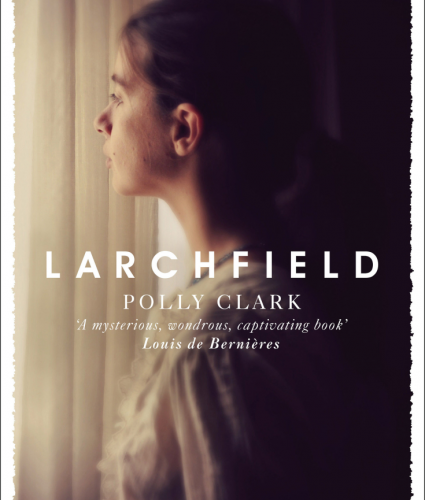
Motherhood. Poetry. Madness – or time travel?
Welcome to Helensburgh – home to the young English poet W.H Auden and, years later, English poetess, Dora Fielding, in (English poet) Polly Clark’s emotionally fraught debut novel.
What’s it about?
Newly married and pregnant, Dora moves to Helensburgh hoping that her new life will engage her as much as her previous arts-based life in London did. Instead she finds herself stranded outside the gossipy politics of village life, isolated by raising her baby while her husband devotes himself to his work, and taunted by her increasingly difficult neighbours, Mo and Terence, whose status as pillars of the local community only serves to deepen Dora’s alienation.
In 1930 Wystan Auden boards a train to Scotland. Fleeing a broken engagement, he begins to teach at Larchfield School for Boys. Despised for his Englishness and his suspected homosexuality, Auden struggles to live a life which is true to himself and seeks friendship to support him during this period of his life.
Dora’s discovery that a young W. H. Auden once lived and worked in Helensburgh offers this increasingly unhappy young mother a fresh beacon of hope. Can embracing Auden save her?
What’s it like?
Lyrical. Emotional. Puzzling.
Dora’s predicament, trapped by motherhood into never ending, mindless tasks, isolated from her childless fiends and accused of paranoia by her increasingly frustrated husband, inspires our sympathy and our empathy. Many of Clark’s observations on motherhood are wonderfully astute. We witness: the abrupt and absolute dominance of the baby’s needs; the reduction of a previously powerful woman to an anonymous and easily discountable “mum”; the way time can stretch greyly in front of you, promising nothing but a succession of nappy changes, milk offerings and naps. One day Dora notices that it is, ‘not even eight thirty’, and already all she can see is grey:
‘The simple truth was that Dora had given up one life and started another. The two were unrelated. She used to have an apple, and now she had an orange…
‘It was just that Kit had an apple and an orange. He had not given anything up. His life was about more. Why was hers about less?’
Similarly, Wystan’s life is restricted by the expectations and attitudes of others, though he has more freedom than Dora and, readers cannot fail to be aware, is on the cusp of renown and an entirely different life.
What does it mean?
I enjoyed reading about both characters, but wasn’t at all sure what to make of the twist in the middle. Is this a time slip novel? Or is Dora simply mad?
Of course, as a remorseful Kit reflects later on, ‘If…Dora’s life was unbearable – and the evidence for this was right there, in her not being able to bear it – then was it really madness to escape into another world?’
It’s never made clear whether certain scenes are real for all the characters, or just for Dora, but in a way it doesn’t matter: both main characters need courage to make their lives bend more to their will, rather than being dominated by the needs and attitudes of others. If Dora can garner that courage from Auden, does it matter if her Auden is real?
I enjoyed reading this because I really liked Clark’s written style and found both stories interesting, but I did find the ending puzzling as Dora makes a key decision that isn’t borne out by the next chapter. Clearly I missed something!
Final thoughts
I found both characters were interesting to read about, though as a mother with young children I identified quite strongly with Dora at points, whereas Wystan’s bachelor lifestyle was obviously less familiar to me. Their stories drew me in through my sympathy for each character and the tension is often exquisite as we wait for them to make the next, seemingly inevitable, mistake.
(Some critics have commented on the familiarity of the characters’ trajectories. I can only say that I didn’t find this a problem, partly because neither story is one that I personally have read about frequently, and partly because Clark’s writing often elevates the material to something quite beautiful.)
This was a story I really enjoyed for the strong characterisation, tense atmosphere and lyrical writing, despite feeling that the ending left a lot unresolved.
I look forward to reading more by Polly Clark.
2 Comments
This is a novel of exquisite depth of feeling. The lives of both Dora and Wystan are beautifully imagined in their respective timeframes. The descent into puerperal psychosis on Dora’s part is very imaginatively handled with her re-emergence from this awful condition given a hopeful future. The horrendous neighbours are described almost painfully and the reader feels for Dora throughout! I liked the way that Dora’s imaginative entry into another world is blurred by time slip allowing for a degree of confusion in the reader’s mind. The reader can begin to empathise with Dora’s mental illness. All in all this is a beautiful book and to be recommended wholeheartedly.
Hi Stuart. I agree! I note that Polly Clark has since published ‘Tiger’, which deals with some similar themes but in what sounds like quite a different way. I must take a look. 🙂